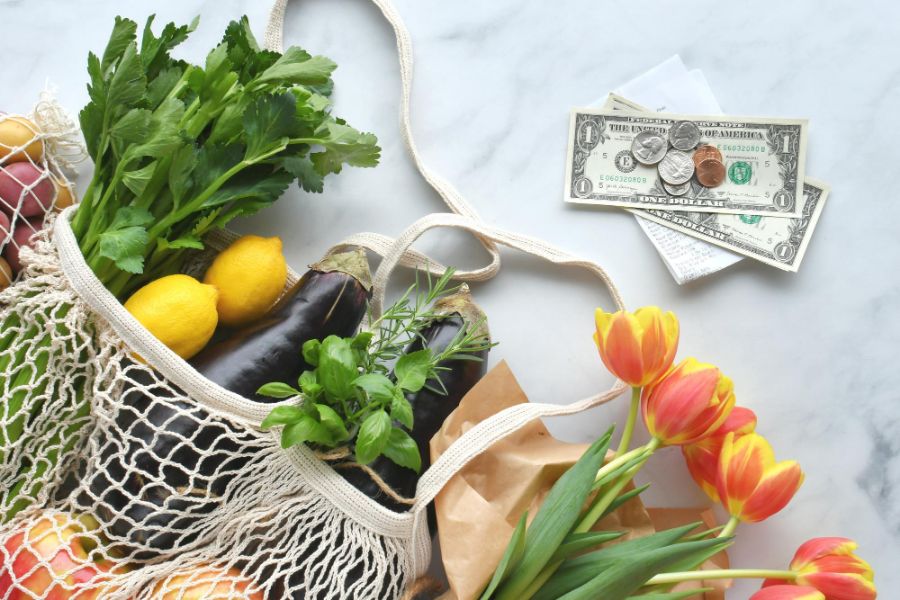Introduction
Frugal living and cheap living are not the same things, although many people use these two terms interchangeably. The concepts behind them are entirely different, as are the consequences and benefits that can be derived from each of them. Knowing this difference can help you, as an individual, to make better choices with money and ultimately lead a richer life.
What does it mean to be frugal vs. cheap? What are the advantages and disadvantages of each extreme? How can you be frugal without becoming outright cheap?
Understanding it is key to good financial health, yes, but also to general well-being because it impacts different dimensions of life and daily dealings.
Defining Frugal and Cheap
Frugal Definition
Being frugal means getting the most out of your money and resources. Value and quality top the list for frugal people, making sure every dollar is well spent. They find means to save money without sacrificing their needs and wants— hunting for deals, slashing coupons, not splurging on unnecessary expenses. The frugal mindset is about maximizing utility and making informed decisions that lead to long-term benefits and sustainability.
Cheap Definition
Cheapness, however, centers on a reluctance to part with money and often at the cost of quality or value. Cheap individuals are only interested in what has the lowest price tag, without considering the possible future implications of their financial choices. This mindset can lead to buying low-quality items or not being able to realize savings or even ruining relationships. The cheap approach often produces a false economy: whatever is saved at first is compensated for in later replacements or reductions in quality of life.
The Key Differences Between Frugal and Cheap
The fundamental differences between frugal and cheap living lie in the mindset and approach to spending.

Mindset
Frugality is powered by the need to get optimal value (while buying) an item, and cheapness is propelled by the need to not want to buy anything. A frugal person looks at the bigger picture with their money as a whole while making a purchase, but a cheap person has myopic vision.

Approach to Spending
Frugal people will look at what they buy and consciously decide on the quality, durability, and need for it. Cheap people look for only the lowest price and ignore these same factors. This often leads to having to replace things more often and being unhappy with what they've bought.

Long-Term Financial Impacts
Being cheap means short-term savings and short-term stability because you will eventually have to replace what you bought or miss out on an opportunity to make a better long-term investment, while being frugal actually does promote sustainable living in addition to financial health because otherwise one might find themselves locked into a series of recurring expenses they come to regret.
Examples
- Frugal - Investing in a high-quality winter coat to last for years and provide both warmth and durability.
- Cheap - Buying a low-cost coat, needing replacement every season because of its poor quality and lack of durability.
Benefits of Frugal Living
Adopting a frugal lifestyle comes with several advantages:
By being conscious of what they spend on, frugal people are able to save more cash, cut down on debt levels, and meet their financial goals in a shorter period of time. This autonomy presents itself as flexibility and peace when it comes to taking care of one's finances. Often times, being frugal means cutting back on consumption and finding ways to reuse items, which can result in less waste left behind. Not only is this good for the environment, but it also encourages minimalism by cutting down on clutter and striving for simplicity. Quality and value are at the heart of frugal living; hence, the satisfaction derived from purchases is better, with fewer regrets. It fosters mindful spending and arms an individual to make informed choices—choices that resonate with their long-term goals and values.Financial Freedom
Less Waste
Focus on Value
The Downsides of Cheap Living
While cheap living might seem like a good way to save money, it often leads to negative consequences:
Cheap items might break or wear out soon and hence force the need for more frequent replacements at the end of it all making the cost higher over time. This begets a spending spiral that nullifies all savings in the first place. Cheapness has an impact on relationships where friends and family feel they are not valued or are being taken advantage of, which leads to strains and ill feelings, thereby working against social ties and emotional wellness. Being cheap can keep people from investing in opportunities that would benefit them greatly in the long run, such as good education or reliable appliances. This myopic view at the short-term level can lead to missed chances for growth and development both personally and monetarily.Poor Quality Purchases
Strained Relationships
Missed Opportunities for Long-Term Savings
How to Adopt a Frugal Lifestyle Without Being Cheap
Here are some practical tips for making smart financial decisions that prioritize value over the lowest cost:
Evaluate Needs vs. Wants
Try to figure out whether it is a need or luxury before making any purchase. This difference will help you to set spending priorities and keep away from unnecessary expenses.
Research and Compare
Take the time to research products and compare prices to find the best value for what you buy. Another way of making sure you make quality purchases is through reading reviews and seeking recommendations.
Use Coupons and Discounts
Look for deals and discounts, but make sure they are on quality items that fit your needs. This can help in saving some money without compromising on quality.
Invest in Quality
Spend more on the longer-lasting and better-performing items as they can save much more money in the longer run. The high-quality ones, most of the time, provide better satisfaction and durability as well—reducing the replacements needed frequently.
Budget Wisely
Create a budget that puts essential spending and saving first but also allows for some fun once in a while. It is through a good budget plan that one can be able to manage his or her finances and ensure what he or she is spending is in line with the set financial goals.
Resources and Tools
- Budgeting Apps: An example is Mint or YNAB (You Need A Budget) that will enable you to keep track of your expenses and remain focused on achieving your financial goals since they will help you know more about your spending behavior and come up with workable budgets.
- Coupon Sites: RetailMeNot and Honey are examples of websites that offer discounts and deals on many products and services. Using these resources can help you save money on quality purchases.
Real-Life Examples of Frugal vs Cheap Decisions
Example 1: Groceries
- Frugal: Purchase items in bulk when on sale and use coupons for items that will expire before they can be used. In this way, one is able to make savings yet ensure quality and nutrition is observed.
- Cheap: Buy food items with the lowest prices tags without considering their nutritional value or taste. This can lead to displeasure and possibly unhealthy conditions resulting from poor diet choices.
Example 2: Housing
- Frugal: Rent a smaller but well-maintained apartment in a good neighborhood and save on rent and utilities. This weighs a good cost-saving option against a safe and comfortable living environment.
- Cheap: Rent the cheapest apartment available, regardless of safety or location or condition. This may cost more in the long run with maintenance and unsafe conditions.
Example 3: Transportation
- Frugal: Buy a reliable used car with good fuel efficiency and low maintenance costs. This choice will be long-term on savings and reliability.
- Cheap: Buy an older car with a low upfront cost but expensive to maintain and repair. You save in the beginning but pay for it later on with many repairs and safety issues.
Conclusion
The concepts of frugality versus cheap living are important for anyone who really wants to be able to make their own decisions with complete information when it comes to their personal finances. Through paying closer attention to value as well as quality, those who are truly frugal can realize their own journey towards financial independence while simultaneously reducing waste during this time and living a life that is richer in experience overall.
Taking into account how one spends and the long-run advantages that come with frugality could be the stepping stone towards improved financial wellness and general well-being. Embracing frugality as opposed to cheapness fosters not only mindful but also sustainable spending as well living, coupled with a balanced way of tending to your finances.












